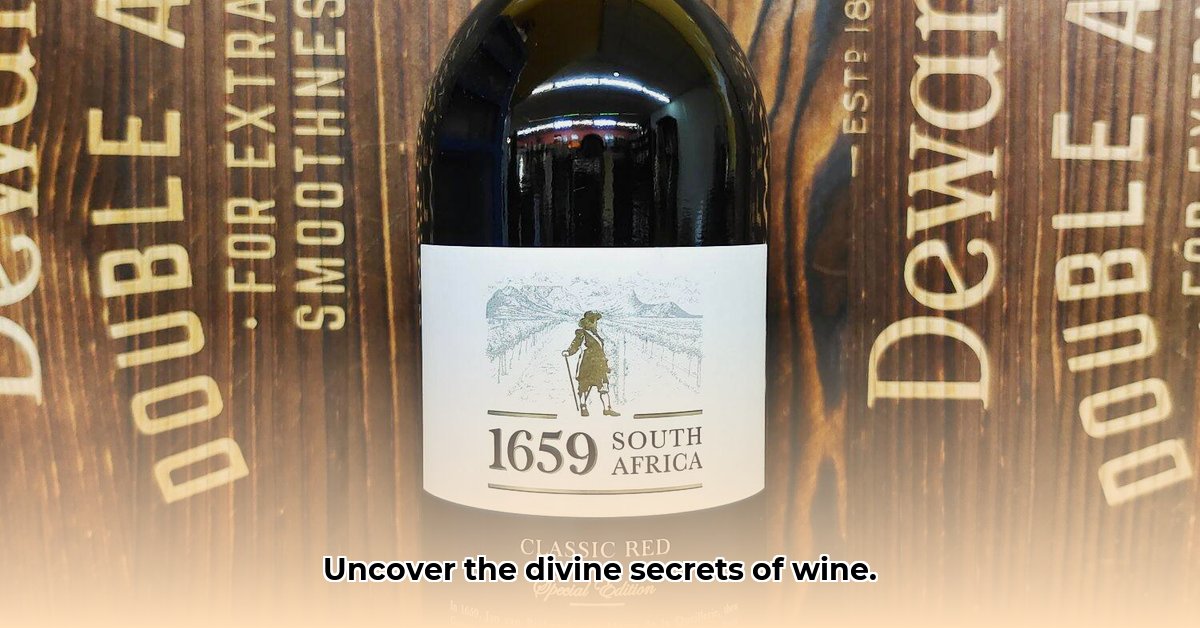Ever wondered about the gods and goddesses who watched over our favorite drinks? This journey explores the myths and legends surrounding wine and beer, from ancient Greece to Mesopotamia and beyond. We’ll meet the party-loving Bacchus, the wise beer goddess Ninkasi, and many others who ruled over harvests and the heady pleasures of alcohol. We’ll uncover how these stories reflect the values and beliefs of different cultures, and even explore how these ancient myths can be used today. Get ready for a fun and fascinating look at the divine drinks that have shaped history!
Wine and Beer Mythology: A Cross-Cultural Exploration of Ancient Deities and Intoxicating Lore
Let’s embark on a fascinating journey through history, exploring the rich tapestry of myths and legends surrounding the divine and intoxicating world of wine and beer. From ancient Greece to Mesopotamia and beyond, cultures have celebrated deities intimately connected with the creation and consumption of these beloved beverages. These weren’t just mere drinks; they were pathways to the sacred, powerful symbols woven into the very fabric of society. These deities weren’t just symbolic figures; they were integral to rituals, societal structures, and the understanding of life’s fundamental cycles.
Mediterranean Wine Deities: Unveiling the Stories of Bacchus, Dionysus, and Ancient Mediterranean Wine Culture
Imagine a boisterous celebration, full of music, dance, and flowing wine. That’s the world of Dionysus, the Greek god of wine, revelry, and ecstasy, later known as Bacchus by the Romans. He wasn’t your prim and proper deity; he was the embodiment of untamed passion, wild abandon, and the intoxicating power of fermented grapes. Think swirling crimson liquid, ecstatic dances under the moonlight, and a feeling of liberation – that’s the essence of Dionysus. His legacy is visible everywhere, from ancient sculptures depicting his exuberant festivals to modern art that still captures his untamed spirit. Dionysus was more than just a god of intoxication; he represented liberation from societal constraints and a connection to primal instincts. His followers, the Maenads, were known for their ecstatic rituals in forests and mountains, showcasing the wilder, untamed aspects of human nature. But Dionysus wasn’t a lone wolf; the Mediterranean world teemed with other wine deities, each with unique stories and personalities reflecting the cultural nuances of their time. Amphictyonis, for instance, was a Greek goddess associated with wine, friendship, and peace, highlighting the social aspects of wine consumption. Acratopotes was known as a companion of Dionysus and a drinker of unmixed wine. Ceraon watched over the mixing of wine with water. These figures emphasize the nuanced role wine played, from wild abandon to social bonding. Did these deities simply mirror the importance of wine in these cultures? Or was there something more profound at play? Perhaps a reflection of humanity’s innate connection to nature’s gifts and the transformative power of fermented fruits.
Mesopotamian Beer Deities: Exploring Ninkasi, Sumerian Brewing Traditions, and Ancient Mesopotamian Beer Culture
Now, let’s traverse the ancient lands of Mesopotamia, the cradle of civilization. Here, the narrative shifts. While the Mediterranean world reveled in wine gods, Mesopotamia held a different kind of reverence – for Ninkasi, the goddess of beer brewing. Her story isn’t just a myth; it’s recorded in some of humanity’s oldest known writings – ancient Sumerian hymns that detail the brewing process with remarkable precision. For the Sumerians, beer wasn’t merely a drink; it was a sacred offering, essential to daily life and religious rituals, a testament to the people’s ingenuity and their deep-rooted relationship with the land. The “Hymn to Ninkasi” is not just a religious text; it’s a practical guide to brewing, showing how deeply interwoven the goddess was with the daily lives of the Sumerians. Other Mesopotamian beer deities include Siris. While Ninkasi embodies the creation of beer, these lesser-known figures show the diversity of beliefs surrounding this beverage. This raises some intriguing questions: Does a society’s favored beverage reflect its cultural values? Does the choice of wine versus beer hint at different social structures or attitudes?
Other Ancient Deities: Exploring Egyptian, Norse, and Asian Divinities and Alcohol Consumption
Beyond the Mediterranean and Mesopotamia, numerous other cultures featured deities associated with alcoholic beverages. In Egypt, Bes was a protector of the home and patron of beer brewers while Tenemit also was the goddess of beer. The Egyptians used beer in religious ceremonies and as payment for labor. Moving north, Norse mythology features Aegir, a divinity associated with ale, beer, and mead. Mead, a honey-based wine, held a special place in Norse culture, believed to grant wisdom and poetic inspiration. Moving east, in Shinto tradition, Aizen Myō-ō is the god of tavern keepers. Inari is the goddess of sake. Du Kang is the Chinese Sage of wine while Li Bai is the god of wine. Tao Yuanming also serves as the spirit of wine. These examples demonstrate that the reverence for alcoholic beverages wasn’t confined to specific regions but was a widespread phenomenon across the ancient world.
Gods and Goddesses of the Harvest: Connecting Deities of Agriculture, Fertility, and the Production of Wine and Beer
Many gods and goddesses didn’t focus solely on wine or beer. They were the patrons of the entire harvest, ensuring bountiful crops—the very foundation for both beverages. Think of Demeter, the Greek goddess of agriculture. Her blessings provided the essential grapes and barley, the very essence of the divine drinks. Osiris, the Egyptian god of the afterlife, was also associated with agriculture and the flooding of the Nile, essential for growing crops for beer and wine. Sucellus, a Celtic god, presided over agriculture, forests, and alcoholic drinks of the Gauls. Cultures across the globe held similar deities, emphasizing the deep connection between agriculture, sustenance, and the joyous celebrations that followed a successful harvest. What does this interwoven relationship tell us about ancient perspectives on food, drink, and spirituality? How did these societies view the delicate balance between human effort and the blessings of the divine in providing sustenance and pleasure?
Deities and Intoxication: Examining the Mythological Connection Between Alcohol, Altered States, and Spiritual Journeys
The consumption of wine and beer often led to altered states of consciousness – a blurring of the lines between the mundane and the mystical. Many cultures incorporated deities associated with these altered perceptions and visions induced by alcohol. In Greek Mythology, Methe represented drunkenness. In Hausa culture, Ba-Maguje served as the spirit of drunkenness. In Aztec culture, the gods of excess were known as Ometochtli. These figures often served as powerful bridges connecting the mortal and spiritual realms. Did these beliefs shape how societies viewed intoxication? Or did the transformative experience of inebriation inspire the creation of these very deities? It’s a chicken-or-egg situation that continues to spark debates among scholars today.
Cross Cultural Analysis: Unearthing the Shared Themes and Unique Perspectives in Cross-Cultural Mythology
While the stories of these wine and beer deities differ widely, some striking common threads emerge. They often embody fertility, abundance, and prosperity, linking the creation and consumption of alcoholic beverages to joy, celebration, and social harmony. But the nuances are illuminating. Wine deities frequently carry a more aristocratic, refined air, associated with feasts and celebrations among the elite. On the other hand, beer deities tend to be more closely tied to community and everyday life, suggesting a broader, more inclusive association. Such differences likely reflect the diverse social contexts in which these beverages were consumed. The very nature of the drink – its production, its ritual, and its context – reveals a great deal about the culture that embraced it.
| Deity | Culture | Beverage | Key Attributes |
|---|---|---|---|
| Dionysus/Bacchus | Greece/Rome | Wine | Revelry, ecstasy, theater, fertility, untamed energy |
| Ninkasi | Mesopotamia | Beer | Brewing, abundance, ritual, community, social harmony |
| Demeter | Greece | Wine & Barley | Agriculture, harvest, fertility, motherhood, bounty |
| Osiris | Egypt | Beer & Wine | Resurrection, agriculture, kingship, the afterlife |
| Freyr | Norse | Mead & Ale | Fertility, prosperity, weather, sacred kingship |
| Bes | Egypt | Beer | Protection of home, brewing |
This is just a glimpse into the vast world of mythological deities tied to alcoholic beverages. Each story, each culture offers a unique perspective on the relationship between humans, their creations, and the spiritual world. These weren’t just drinks; they were conduits to the divine, powerful symbols of celebration, community, and the cyclical rhythms of life itself. Further research could delve into the role of these deities in specific rituals, ceremonies, and social structures, providing even richer insights into the human experience across millennia.
Harnessing Wine and Beer Mythology in Modern Storytelling: Inspiration for Brands and Marketers
Key Takeaways:
- Ancient myths surrounding wine and beer offer rich narrative frameworks for modern beverage branding.
- These stories tap into universal themes, boosting consumer connection.
- Diverse cultural interpretations provide unique brand identities.
Mediterranean Deities of the Vine: Weaving Bacchus and Dionysus into Compelling Brand Narratives
Let’s start our journey with the most well-known figures: Bacchus and Dionysus. These Roman and Greek deities, respectively, represent the intoxicating power and exuberant joy of wine. Their myths – from Dionysus’s birth to the ecstatic Bacchanalia – provide endless material.
- How to Stop Apps From Running in the Background to Boost Your - December 1, 2025
- How To Move Apps On Your Droid For Better Organization - November 30, 2025
- How to Move Apps on Android for Better Organization - November 29, 2025










